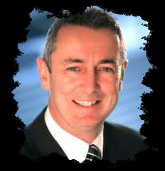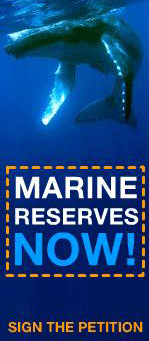Testimonials
All over the world biologists, environmental activists, and retailers are working to save the oceans from unsustainable fishing practices. Here's what a few of them have to say about their work and their concerns...
Andrew Mallison
48 years old, United Kingdom
Technical Manager, Marks & Spencer

We are sure that our customers are aware of environmental issues, through research and when we bring fishermen to our stores to meet customers - one of the most frequent questions our customers ask on these occasions is: "are we overfishing stocks?" M&S have always been a trusted brand and we track how customers perceive us, we believe our policies on seafood contribute to our continuing to be one of the UK's most trusted retailers.
Find sustainable fish takes a great deal of time and expertise. For most consumers, the best option is to buy only sustainable fish from retailers and restaurants who really know where their fish is from, how it's caught and whether it is a responsible choice. Fish is healthy and quick to cook - there are lots of great types fish to eat so try something different and take pressure off the traditional favourites.
Jennifer Jacquet
27 years old, United States
Ph.D. candidate with Daniel Pauly’s Sea Around Us Project at the University of British Columbia in Canada.

"My biggest concern is overfishing, which precedes all other human disturbances to marine ecosystems, including pollution, degradation of water quality, and anthropogenic climate change. But when we talk about overfishing, we are really talking about overeating. Almost all ocean fishing exists to feed humans or something we eat (such as farmed fish). Of all the flesh consumed - chicken, beef, pork, mutton, and seafood - the latter accounts for the greatest amount eaten globally. In fact, fish is one of the last wild foods most people eat with any regularity. The human appetite, a combination of population growth and demand for fish, is at the root of the global fisheries crisis. It’s time to go on a global diet."
John Hocevar
John Hocevar
39 years old, United States
Oceans Campaign leader for Greenpeace USA.

The first and most
meaningful step retailers can take is to stop selling the least
sustainable seafood. Seafood from overfished stocks, destructive bottom
trawl fisheries, or environmentally unsound aquaculture operations
should be dropped immediately.
It is difficult, if not impossible, to find enough sustainable seafood
to meet current demand given the poor state of the industry right now.
The challenge is to take the immediate steps needed on the retail end
to create space for the policy solutions which can help restore the
health of our oceans over time.
Martini Gotje
58 years old, from Holland living in New Zealand
Maritime Intelligence consultant (Marint NZ) and project work for organisations like Greenpeace.

The Earth is a water planet. When
you look at it from space it is mostly blue. The ocean has a profound
effect on all life and I see it as the Heart of Earth, which makes
everything tick on this planet. It provides essential food resources
for billions of people. We cannot waste anymore time for protection of
these resources as it is very clear that there is too much capacity to
catch and regulation is too weak to prevent overfishing. We cannot
allow the fishing industry to deplete essential fish resources.
There is an almost mafia style "code of silence" within the fishing
industry, which prevents public knowledge of the origin of fish and who
caught it. The fishing industry has too much power at the table of the
RFMO (Regional Fisheries Management Organization) regulators. This prevents the necessary regulation to prevent
depletion and assure the health of fish stocks. History has shown that
the industry is not capable of regulating itself. Consumers
cannot make the right decisions as to which fish to buy unless we have much more
transparency within the industry.
Paul Johnston
52 years old, United Kingdom
Resarch Scientist, Laboratories at the University of Exeter

We need to do two things: Firstly, strive to understand global ocean systems, and secondly recognise that, nonetheless, we cannot expect ever to have full understanding of the complex and diverse oceanic realm. Once we accept that we cannot know everything then the next setp becomes logical: We need to act to protect our ocean systems by setting large portions aside as fully protected marine reserves.
Seafood should only be sourced from fisheries which meet strict criteria of sustainability. A good first move would be for the industry to understand that "sustainable" doesn't simply mean carrying on fishing until the fishery collapses, but that fisheries are managed in a way that means that the needs of both current and future generations of humans are met and that marine ecosystems are not progressively degraded in the process. Hence, the need for marine reserves.





